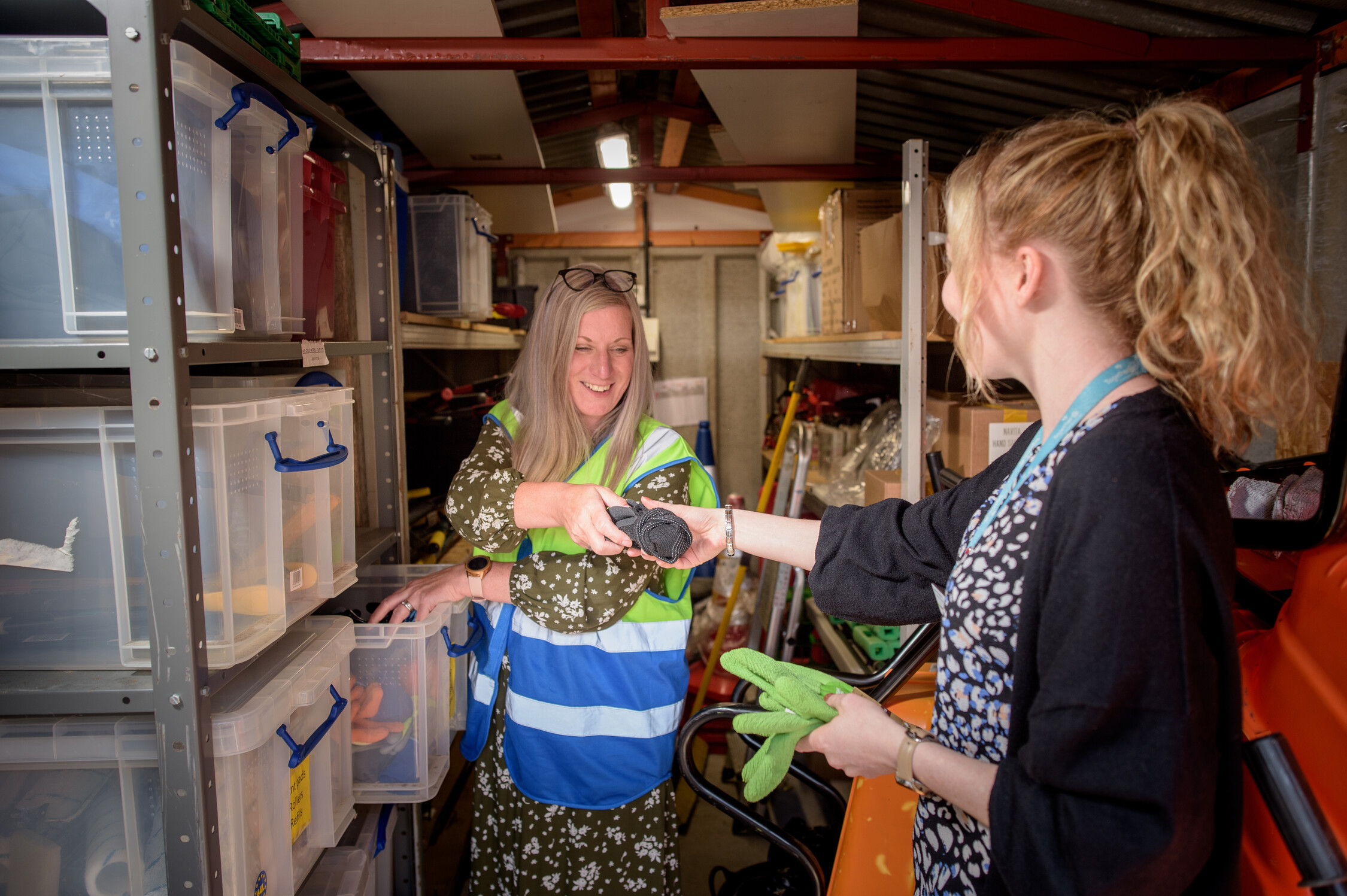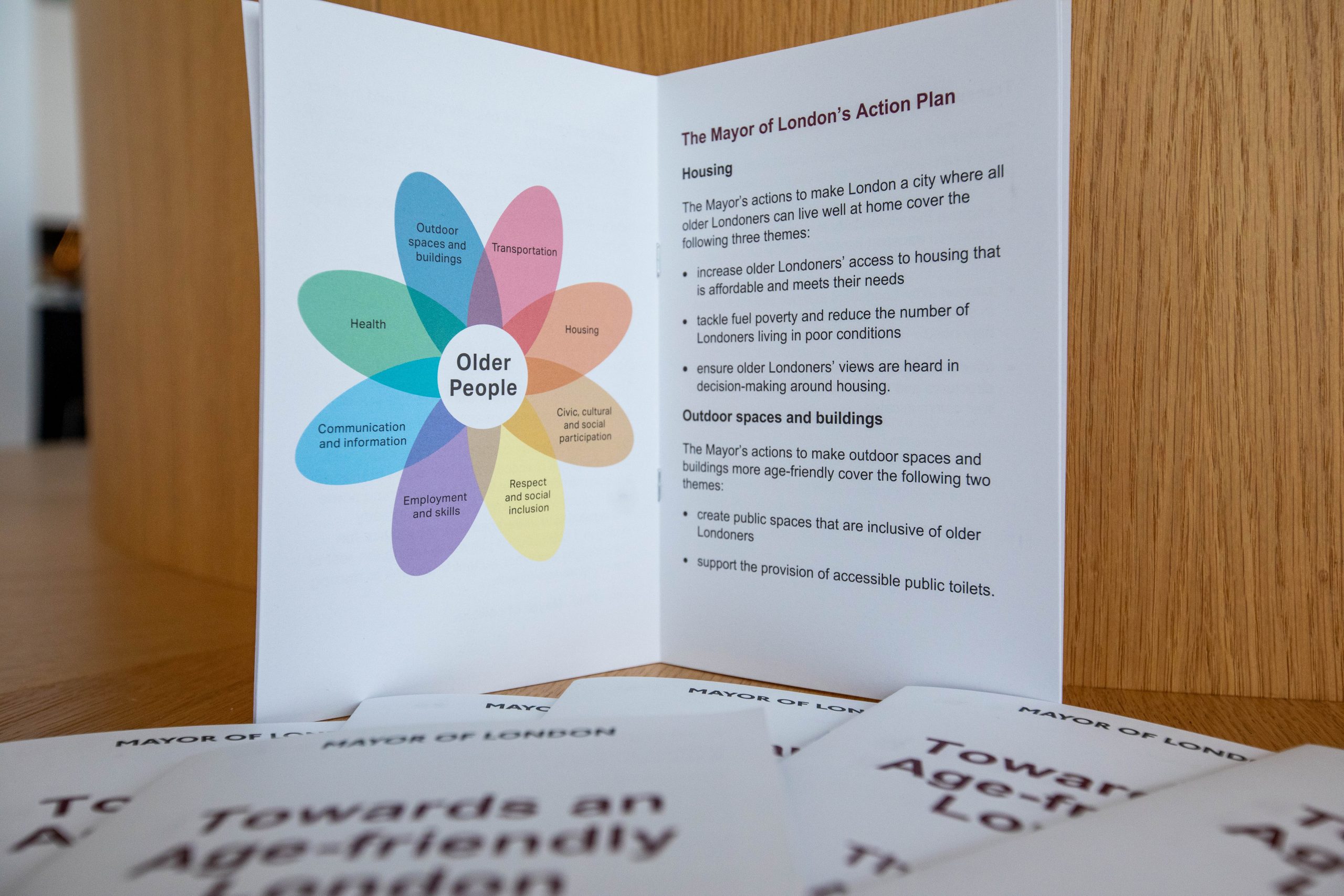
Action on employment
It’s hard to read a business publication currently without coming across an article discussing one of the key issues faced by the UK (and most, if not all, developed countries): how best to attract and retain the skills and life experiences of older people.
And with good reason. The UK faces a huge skills shortage, exacerbated by the large number of “boomers” either in or entering their 60s, and not helped by the “great retirement” that appears to have occurred during lockdown. The crisis in our care system has led to a large swathe of the working population giving up work to care for a family member.
Many organisations are (sometimes belatedly) waking up to the fact that older workers can play a key role – not least by applying their people skills and learned experiences, making use of their contacts or by mentoring younger colleagues. They jettison this irreplaceable resource at their peril.
At the same time, the cost-of-living crisis is compelling many of this cohort to attempt to “unretire”. Equally, many older people simply love what they do, and the people they work with and for, and feel no need to retire.
It would not seem to be an insurmountable problem to bring employers and potential employees together, and supply would readily meet demand.
Except that… all too often there are barriers to older people remaining in or returning to work – their health, mobility and other commitments for instance – and adapting working practices and the workplace itself can prove essential to enable employers to tap into this resource. Less frequently, but still an issue to be resolved, can be ageist attitudes.
Initiatives such as the Midlife Review can play a big part in squaring the circle. So too can flexible working, or allowing employees to change to a less demanding role. In fact, there are myriad approaches which could help. We want this Action Area to look at this issue in the round and explore ways in which the needs of both older people and employers can best be resolved, and share those ideas and strategies with policy makers, employers and older people themselves.
Get involved
To contribute towards the AAA’s Employment policy plans or to see your blogs, papers, research or news on these pages, email: info@theageactionalliance.org
More reading
If you would like to read more about the Midlife Review, Steve Butler, CEO of Punter Southall Aspire and EngAgeNet director Tony Watts OBE have written a detailed guide to the review and its potential impact on work, wealth and wellbeing, available here: https://www.amazon.co.uk/Midlife-Review-guide-wealth-wellbeing/dp/1781334609
The Age Action Alliance is supported by
Latest News
-

Closing employment gap for older workers “would generate £9 billion a year for economy”
The Centre for Ageing Better has joined forces with other organisations to create the 50+ Employment Commitment which outlines six steps political parties should take to level the playing field for older workers.
-

With Covid still here, ILC issues plea to support employee vaccinations
Covid has not gone away, and with many older people potentially vulnerable to the effects of Long-Covid, ILC-UK is urging the Government to provide tax incentives to support employers who want to vaccinate their older members of staff.
-

Life expectancy decline hits economy and workforce
Life expectancy for people aged over 50 has started to fall, new research from the International Longevity Centre – UK (ILC) reveals. The think tank finds that changes to the health and life expectancy of people over 50 will have a significant impact on the economy.
-

“Unretirement Entrepreneur of the Year” is watching everyone’s backs…
The very first “Unretirement Entrepreneur of the Year” has been crowned at the Great British Entrepreneur Award’s gala ceremony at the London Grosvenor Hilton Hotel.
-

Almost one million more workers aged 65 and above since the millennium, new analysis reveals
Ageing Better’s new analysis of the latest ONS Labour Market data reveals that the employment rate of those aged 65 and above has doubled over the past quarter of a century.
-

More than a million over 50-year-olds remain “involuntarily workless”
ILC UK research shows that one in ten people aged between 50 and state pension age don’t work but want to.
-

“Platinum Pound” report finds UK economy could unlock billions by making the workplace more inclusive
The Platinum Pound, a new report by cross-party think-tank Demos, supported by Anchor, has revealed the UK economy could unlock £6.6bn a year by making staying in work more inclusive. The report reveals an additional £1.2bn a year could be unlocked by returning to pre-pandemic rates of later life volunteers.
-

New support “toolkit” for employers launched in bid to end age bias in recruitment
The Centre for Ageing Better has launched new support to help employers remove age bias from their recruitment processes to maximise the full potential benefits of older workers for organisations.
-

Investment in preventative health key to longer working lives
Across the G7 the UK leads the way in long working lives: But the wealthy world faces a long-term workforce crisis due to demographic change, argues the International Longevity Centre, and we still need to work another three to seven years to become a world leader and help our economy adapt to longer lives.
-

High inflation means that the “Great Unretirement” may prove costly for some older workers
New Age UK research shows how the cost of living crisis is upending some people’s retirement plans and their prospects of a comfortable standard of living in the years to come.
-

ILC recruiting for a Head of Programmes
The International Longevity Centre wants to recruit a Head of Programmes with excellent project management skills, strong analytical ability and good written skills. The successful candidate will have a passion for, and understanding of, public policy, as well as a desire to influence change.
-

100 employers sign up to “Age friendly” pledge
More than 100 leading organisations and businesses, as well as many smaller ones, have joined the Ageing Better Age-friendly Employer Pledge scheme within its first 100 days.
Latest blogs & comments
-

Is your workplace carer-friendly?
If not, it will almost certainly hurt your business, argues Deborah Stone of Mature Thinking. That’s because caring is increasingly becoming a part of people’s lives as our population continues to age and fewer and fewer qualify for support – and the nation’s growing army of informal carers are struggling to combine work and care.
-

Securing your retirement finances could mean being flexible at work
Being able to work for as long as you need in order to secure a financially secure retirement could become a lot easier after new employment laws come into force in April, writes Tony Watts OBE. But it will require flexibility from employers as well as employees.
-

Four for ‘24: Four types of business who need older employees
By 2040, it’s estimated that 63p in every pound will be spent by someone aged 50 or over in the UK. Yet typically, advertising, marketing and customer support cater to a younger demographic. There’s plenty of research to show that businesses are missing out, says Belinda Basil-Jones, Director of Partnerships and Insights at AAA members…
-

How can all generations thrive in multi-age workplaces?
Intergenerational workforces are increasingly common as people live and work longer. Steve Butler of AAA members Punter Southall, says businesses can exploit the breadth of knowledge and experience they bring.
-

A dozen benefits of older workers to employers
With labour and skills shortages across employment sectors and to mark Older Workers Week at the end of November, Chris Walsh, Chief Executive of Wise Age sets out 12 of the great reasons to employ older people.
-

Whither an Age Friendly London?
After many years work, effort, and lobbying, London finally has an Age Friendly Action Plan. But, asks Tim Whitaker, a Trustee of Wise Age, will the plan make a difference and lead to concrete improvements in the lives of older people?
-

Want to carry on working in good health? Try thinking flexibly!
When do you plan to retire? Whatever age it is, you’ll want to reach that point in good health in order to enjoy your retirement to the full. Changing the way you work could just help you do that… By Tony Watts OBE
-

Twenty top tips for working from home
AAA members Design Age Institute has been collaborating with researchers from Northumbria University and Loughborough University to explore the principals of working well from home in a new guide on designing better workstations.
-

Older Londoners need more help with finding jobs – and less discrimination
Many of the capital’s economically inactive people aged 50 and above face disadvantages, including ageism, when seeking employment. Tim Whitaker, Trustee of WiseAge, says we need a new agenda for looking at London’s older workers – one which addresses the key problems faced by many of them. The government has been prompting older people back…
-

Enough is enough: A call for change in the Work Capability Assessment
“The WCA doesn’t need to be so punitive, complex or soul-destroying for sick and disabled people when it comes to benefits and work in the UK,” writes Lee Healey, Founder of Age Action Alliance members IncomeMax CIC, who has shared his response to the Department for Work and Pensions (DWP) to the consultation on the Work Capability Assessment (WCA).
-

Guide sets out the business case for employing older workers
As part of an Employers Guide to “Best Practice in Age and Employment”, from the London-based later life employment consultancy Wise Age, the authors set out the benefits of harnessing the talents of older people within their workforce.
-

London must embrace age-friendly employment practices… starting at the top
Sadiq Khan will be producing a response to the London Assembly’s recommendations on the issue, says Tim Whitaker, vice chair of WiseAge, and there might be grounds for optimism.